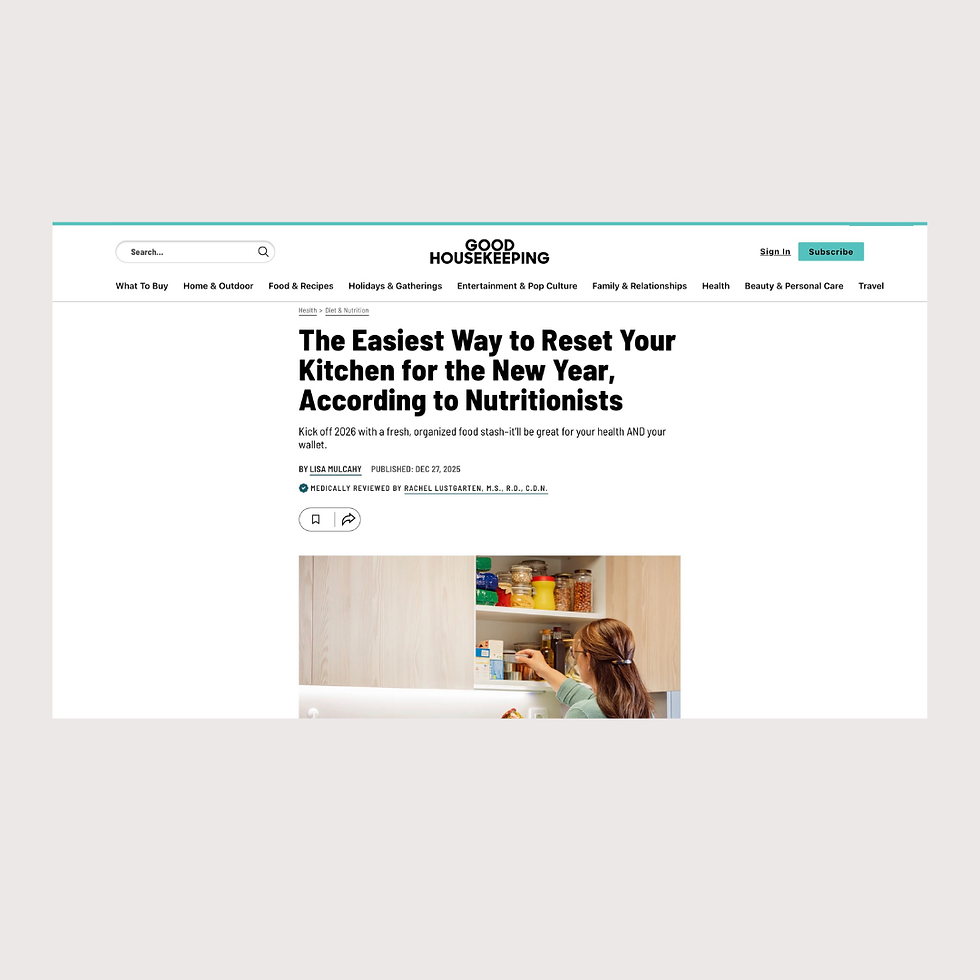Top 6 Things You Should Be Doing Now for Women's Eye Health Month
- Sue-Ellen Anderson Haynes

- Apr 8, 2021
- 3 min read
Updated: Apr 18, 2021

From screens to sunlight exposure to hormonal changes and make-up. These can all affect the health of your eyes. The question is, are you taking your eye health for granted? Daily, your eyes can take a big hit! So in Women’s Eye Health & Safety Month we bring you up to speed on this topic.
Eye health, for many, is not often thought of as a priority until something goes wrong – blurry vision, seeing floating spots, difficulty reading close or far away!
Hormonal fluctuations (sex hormone = estrogen, progesterone; thyroid hormones, etc) are very much a concern for girls and women. These changes can often affect the health of the eye amongst other parts of the body. In the adolescent stage, rapid hormone changes in puberty can cause nearsightedness or myopia. In pregnancy estrogen levels can cause blurry vision and varying progesterone levels may affect the eye glands and cause eye irritations such as dry, itchy eyes. During perimenopause or menopause (or if having underlying thyroid issues) there may be an increased risk for age related macular degeneration where blurry vision intensity over time making it difficult to see or at its worst, lead to blindness.
For those in the back, if you have perfect vision now, according to research it can deteriorate with age (starting around your mid-40s) along with other environmental or lifestyle factors. Thankfully though, there are things you can do to help slow this process down.
Here at 360Girls&Women, we emphasize complete health – not just food and activity - mental, physical, and spiritual health – an all-inclusive approach to health; holistic and natural. So let’s take a look at a few things you should be doing now to protect your eyes.
1. Limit screen time by incorporating mini breaks away from the phone and computer. For example, have your lunch meal outdoors away from electronics; Incorporate mini 5 - minute devotionals throughout the day where you are reading from a book and not looking at a screen.
2. Use the 20-20-20 rule – For every 20 minutes of screen time, look 20 feet away for 20 seconds. This may help to rest or relax the eye and achieve better eye focus.
3. Get a regular eye exam as part of your routine check-up, in addition to during and after puberty, pregnancy, and menopause. A comprehensive exam may be warranted if you have noticed sudden or unusual changes in your vision, which can occur during every stage of the lifecycle of a girl and woman, as discussed above.
If you have diabetes (uncontrolled elevated blood sugars increase your risk for blindness) or other health conditions such as high blood pressure, history of cataracts/glaucoma in the family or circulation conditions - regular eye exams are necessary.
4. Practice good make-up hygiene and use nontoxic brands. Refresh and update your make-up about every 3 months to decrease risk of eye infections which can lead to temporary or permanent blindness, according to the FDA. In addition, your eyes are compromised when toxic liners, mascara, and eye shadows enter the eyes. Regardless how careful you are when applying make-up (your skin is the largest organ of the body) these harmful substances can enter through the skin. Once exposed, overtime they can lead to serious health problems such as hormonal issues or even cancer.
Use referral number 16670036 for checkout under sponsor and enroller.
For wholesale discount, create a membership using 16670036 for enroller and sponsor.
5. Wear protective eye wear when exposed to sunlight, phones or computer screens. There are a variety of glasses on the market. If you need prescription glasses, there are usually options for adding protection on lenses to filter the UVB rays/ blue light. If you don’t need prescription glasses you can get blue light filtering lenses in many stores including here. If you have children make sure their eyes are also protected when using screens. I use these non-prescription blue light blocking glasses for my children.
6. Boost dietary antioxidant intake. There are several “Rockstar” nutrients for eye health that you can obtain in a healthy eating style. One of them is called Zeaxanthin - found in green leafy veggies and oranges, one of my favorite fruits! Zeaxanthin helps protect the eyes from light sources. Want to learn more about building a foundation with specific phytonutrients to meet your personal health need? Or interested in a complete lifestyle change geared to women’s health? Book a discovery call and we’ll go from there.
Celebrate Women’s Eye Health and Safety Month by sharing this blog post with a girl or women in your life!
Let me know in the comments how you plan on protecting your eyes during the month of April and beyond!
References
Zeaxanthin: Metabolism, Properties, and Antioxidant Protection of Eyes, Heart, Liver, and Skin https://www.ncbi.nlm.nih.gov/pmc/articles/PMC6770730/
Does the 20-20-20 rule prevent eye strain?
American Academy of Ophthalmology
American Optometric Association
Risk associated with eye make up



































Comments